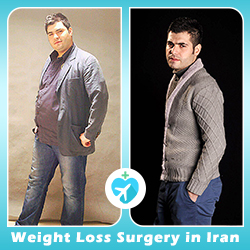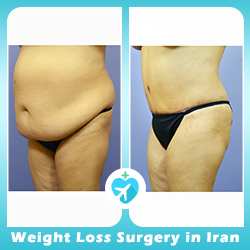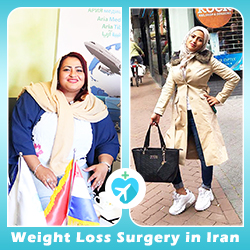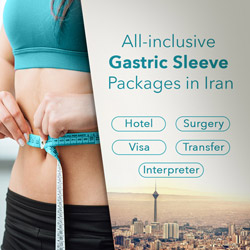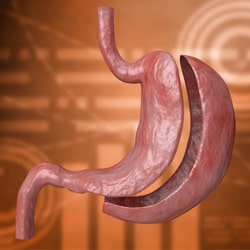Have you tried various diets? Have been going to the gym for a while? But yet, you haven’t lost as much weight as you wanted to? Well, in this case, you need a more effective solution. What you need is a gastric sleeve or sleeve gastrectomy, which is one of the most popular types of weight loss surgery.
In this procedure, the capacity of the stomach is considerably reduced by about 75%. This way, your body is forced to reduce producing a hormone called ghrelin that is responsible for creating the feeling of hunger, not to mention that the rest of your stomach, which is now in a shape of a sleeve, would hold much less food compared to when it was intact.
The thought of having cuts inside your body, especially in your stomach, is scary. But if you know exactly what is going to happen during gastric sleeve surgery, it’ll be much easier to make a decision. To help you understand this procedure better, in this article, we provide top 7 things you should know about sleeve gastrectomy.
Top questions about gastric sleeve surgery
1- Am I an eligible candidate for gastric sleeve surgery?
Not everyone is an eligible candidate for sleeve gastrectomy. To know this, you need to calculate your body mass index (BMI). If your BMI is above 35, then you might be an ideal candidate for the surgery. You can calculate your BMI and find out what type of weight loss surgery is right for you. Also, if you wish to gain more information about this matter, you can get a free consultation from our consultants here at AriaMedTour.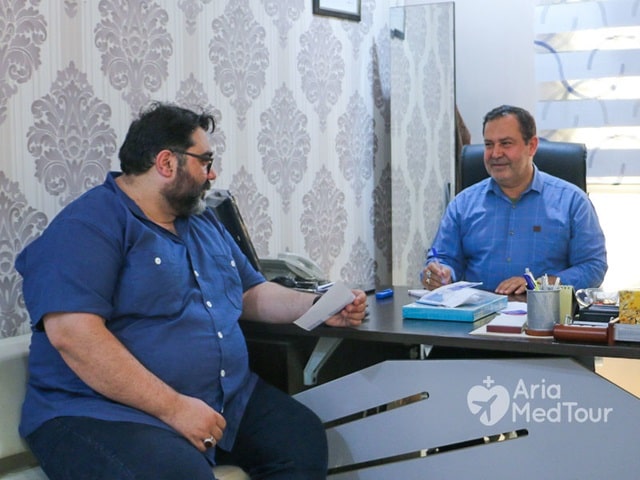
2- How is gastric sleeve surgery done?
Luckily, you won’t have to see what’s going on during this one-hour surgery. Sleeve gastrectomy is a major operation; thus, you will have anesthesia for your surgery. After you’re asleep, the surgeon starts the operation. Gastric sleeve is performed with the laparoscopic technique in the majority of cases.
Your surgeon will make small incisions to your upper abdomen to insert surgical instruments, including a laparoscope to see the inside of your body. These incisions are rather small; the largest one is about three centimeters in diameter. Making small cuts in your stomach helps to reduce the surgery pain and it prevents you from getting hernia afterward.
Using this method, the surgeon will remove roughly 75% of your stomach; leaving a banana-shaped part of your stomach that resembles a sleeve. Finally, the surgeon runs a test for any leaks in your remaining stomach either by upper endoscopy or a dry study.
3- How long is the recovery period?
Normally, you only spend one to three days in the hospital after gastric sleeve. You should be able to walk a few hours after the operation. You will probably feel sick at this stage which is completely normal. You need to drink plenty of water to stay hydrated. Although you might feel languid after the surgery, you will be able to go back to work within one or two weeks. Do not push yourself at this time; take more days off if you need to.
For two months, you should pay special attention to your diet. You will start with liquids and then pureed foods. After several weeks of soft foods, finally, you can slowly switch to regular food. Just remember, you should chew each bite well. If you eat regular food too quickly, you may experience nausea and pain.
As you now have a very smaller stomach, you cannot eat big meals. But don’t worry, you will feel full sooner than you used to. You have to make sure that you will get necessary nutrition in that limited meal. Protean will be an essential part of your diet, along with vitamins and mineral supplements. And above all, you should stick to your diet and supplements for the rest of your life.
For about a year after sleeve gastrectomy, you need to have regular blood tests monthly. These tests will ensure that you don’t face deficiencies such as low blood iron or anemia, low vitamin D levels, or low calcium.
Learn how to have a fast recovery after gastric sleeve surgery.
4- Will I have weight regain after sleeve gastrectomy?
You will probably regain some of the lost weight after two years following the sleeve gastrectomy. However, the overall amount of weight loss you have after a gastric sleeve surgery will be considerable. Be sure to ask your surgeon how much weight regain is normal after gastric sleeve.
5- What are the risks of gastric sleeve surgery?
Like any other major operations, the gastric sleeve has its own risks. Infection, blood clots, anesthesia bad reactions, bleeding, nausea, vomiting, and constipation are common complications. A less usual complication is leaking of stomach contents from your surgery cuts.
Those women who wish to get pregnant after the sleeve gastronomy better to wait at least 12 to 18 months. Also, those who suffer from type II diabetes should be more careful when undergoing the surgery as they are at higher risks. Make sure you follow your surgeon’s instructors very carefully.
6- Will I need to have plastic surgery after gastric sleeve?
Some patients who have undergone gastric sleeve surgery have lost about 78% of their pre-surgery excess body weight. This is a considerable amount of weight. Loose skin after weight loss surgery is a common problem, so remember that you may need to have a plastic surgery, such as a tummy tuck, thigh lift, and arm lift, for removing the hanging skin after your mass weight loss.
In some cases, patients with loose skin can hide them by clothing. But some people may look for a long-term solution and choose plastic surgery. It is better to wait at least 18 months to undergo cosmetic surgery.
7- Will I have to go on a diet before I have surgery?
You might be recommended by your surgeon to go on a special diet for at least three weeks before the surgery. A pre-operative diet will help you to reduce the fats in the abdomen and smaller the size of the liver, which makes your operation much safer.
Bottom line
Gastric sleeve is a big step in life; it will change your eating habits for good. As mentioned, if you don’t settle yourself into your new lifestyle, you may gain weight again. Also, gastric sleeve surgery and its probable follow-up plastic surgery might cost you an arm and leg and some insurance company doesn’t cover it. But the good news is, you can only have sleeve gastrectomy for a reasonable price in Iran. Are you ready to build your new healthy body? Take a look at AriaMedTour gastric sleeve packages.

